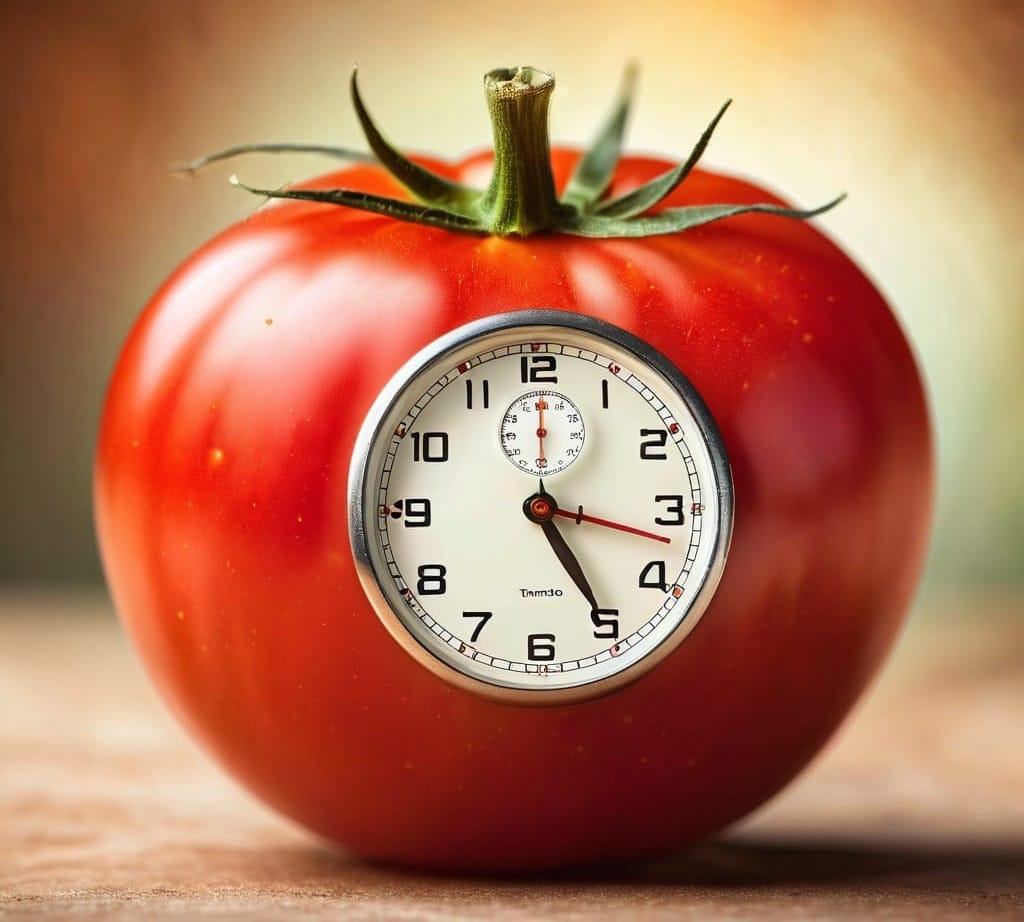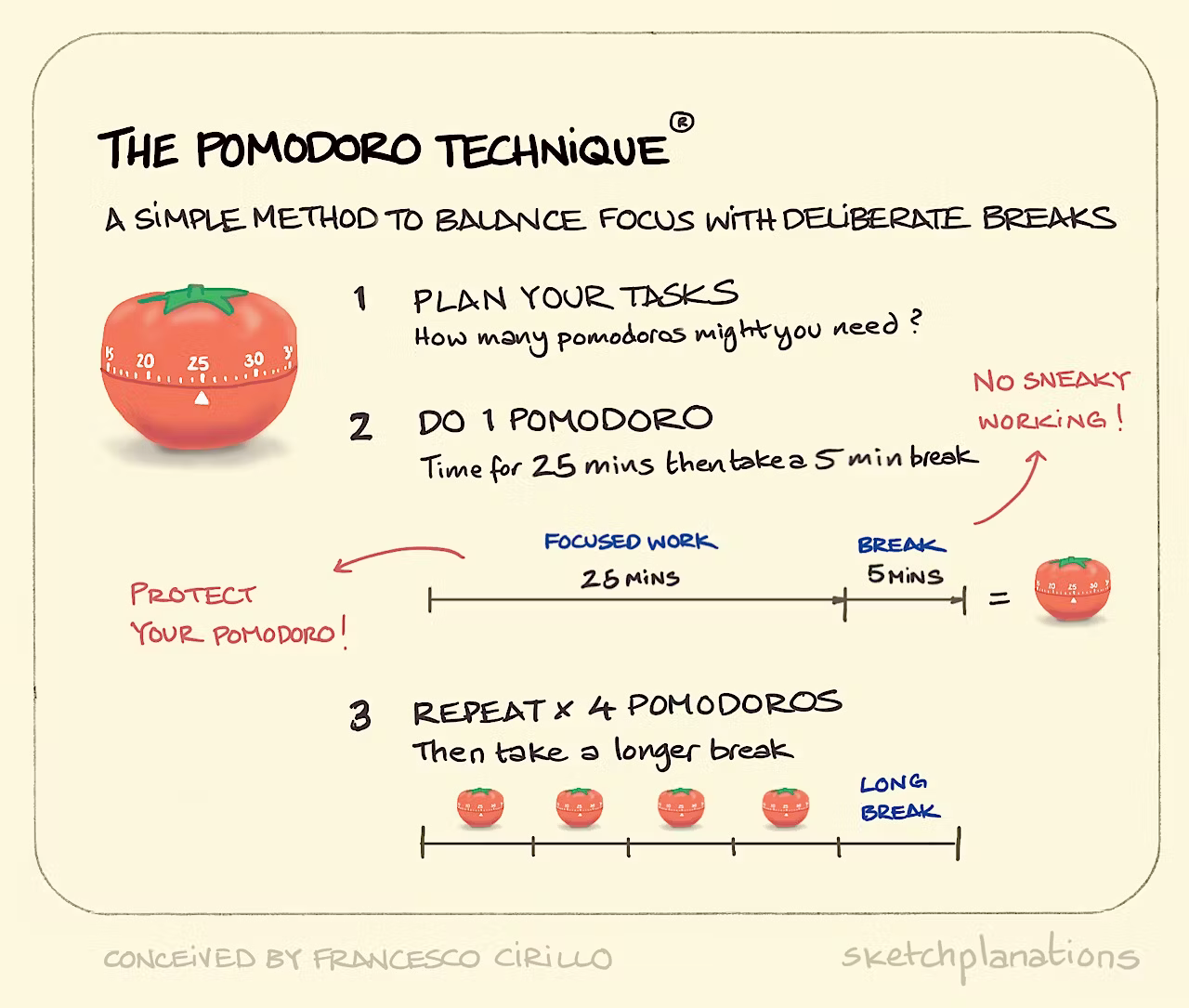The Fruit That Saved My Focus
Cultivate your focus, or your life withers away.

It's amazing how doing everything at once hides the fact that you don't do anything at all.
The alarm clock rings, and I moonwalk out of my bed. I'm a morning person, so I'm stoked that it's the dawn of a new day. Fifteen minutes later, I'm out the door, and ten minutes after that, I'm at work. When everybody else is still at home, I'm cranking out the most important tasks of the day. But before I start, I need to choose a podcast to listen to. Also, I could go on YouTube and listen to a TED talk while working. The spreadsheet with the new features isn't going to write itself, either.
Instead of choosing one of these activities, I settle for doing everything at once. I start the podcast, open up the TED talk I want to listen to after the podcast, and begin with the spreadsheet. The first 30 minutes are great; I'm alone at the office. Then, everybody else starts their work day as well. This means one thing for a knowledge worker: the onslaught of Teams messages begins. Every other minute, the Teams icon lights up. It must be super important (it never is), so I click on it. At the same time, my eyes hover over the email app. I realize that I haven't checked my emails today, so I open up Outlook. While I go through my emails, another Teams message pops up. I open up Teams again.
About ten minutes later, I've forgotten that I ever worked on a spreadsheet. All the while, I missed the podcast I was listening to; it turned into an obnoxious background noise instead of a source of entertainment.
This pattern continues late into the afternoon. Every time 3 p.m. rolls around, I am mentally drained. This has been going on for the past couple of months. I am always pooped in the mid-afternoon. I can't remember having that problem when I was younger, which is why I first attributed it to age.
But then I realized what the root of the problem is: Task-switching is the devil. It rips your focus apart.
I already wrote about how slacklining showed me the power of the breath when it comes to focus. Not only that, but I also wrote about how distractions are silent time-killers. This time, I needed a technique that could help me regain my focus. That's when I remembered the fruit of focus:

The Pomodoro technique is one of the most powerful tools that I’ve ever come across. It's also one of the simplest tools to use. Set a timer for 25 minutes. Focus on a single task. When the timer is over, take a break of five minutes, then continue with another focus bout.
This simple technique helped me understand my patterns. They’re much worse than I thought; I hadn't realized how scatterbrained I was.
Willpower wavers during the day. I know that I'm not stronger than the distractions of the modern world. Building systems beckons freedom, so I built a system around training my focus.
- Set a clear goal: Know what you want to accomplish before you start your work session. If I don't set a clear goal, I tend to get sidetracked.
- Put your phone on "Do Not Disturb": There's nothing more dangerous to your focus than your smartphone. Studies show that your phone is a distraction just by being in your vicinity. Put your phone out of sight. Program a mode where it doesn't ring or buzz if there's a notification.
- Put your messenger on "Do Not Disturb": Teams is one of my most hated apps of the year. It's a great technology for collaboration, but poison for your focus. Use the native DND mode. It will make you much more productive while not draining so much of your mental energy.
- Cut down on caffeine: Caffeine is a phenomenal stimulant for focus in moderation. I suck at moderation. After a certain amount, my alertness wavers for anxiety. This disrupts focus by creating a vortex of negative thought patterns. Caffeine sensitivity differs, but aim to consume no more than 400 mg of caffeine daily.
But building a system is only the foundation. We can go much further to become even better at focusing. Focus is like a muscle – and like a muscle, it can be trained. So we can design a training plan to foster this ability.
Here's my current focus-training regimen:
- Mindfulness meditation: What the gym is for muscle-building, mindfulness meditation is for focus. There are a bazillion different methods of mindfulness meditation. Don't go into analysis paralysis on that one. I go on YouTube and search for "mindfulness meditation for focus." I click on a video that has a lot of views, and I'm off to meditation land.
- Be present during an activity: I listen to podcasts while I do other activities like working out or cooking. That's nothing bad, and I don't think you should take the fun out of everything. But in the beginning, it's a great exercise to be more present and strengthen your ability to focus.
In today's world, attention is one of the scarcest and most valuable commodities. Most people think that this is only the case for companies, but it's especially true for yourself.
Where focus goes, attention flows.
– me, who probably stole that quote from someone else
Treat your focus as something sacred. If you don't, no one else will. Reap the fruit of focus by cultivating it.
